The uncanny reinvention of autocracy
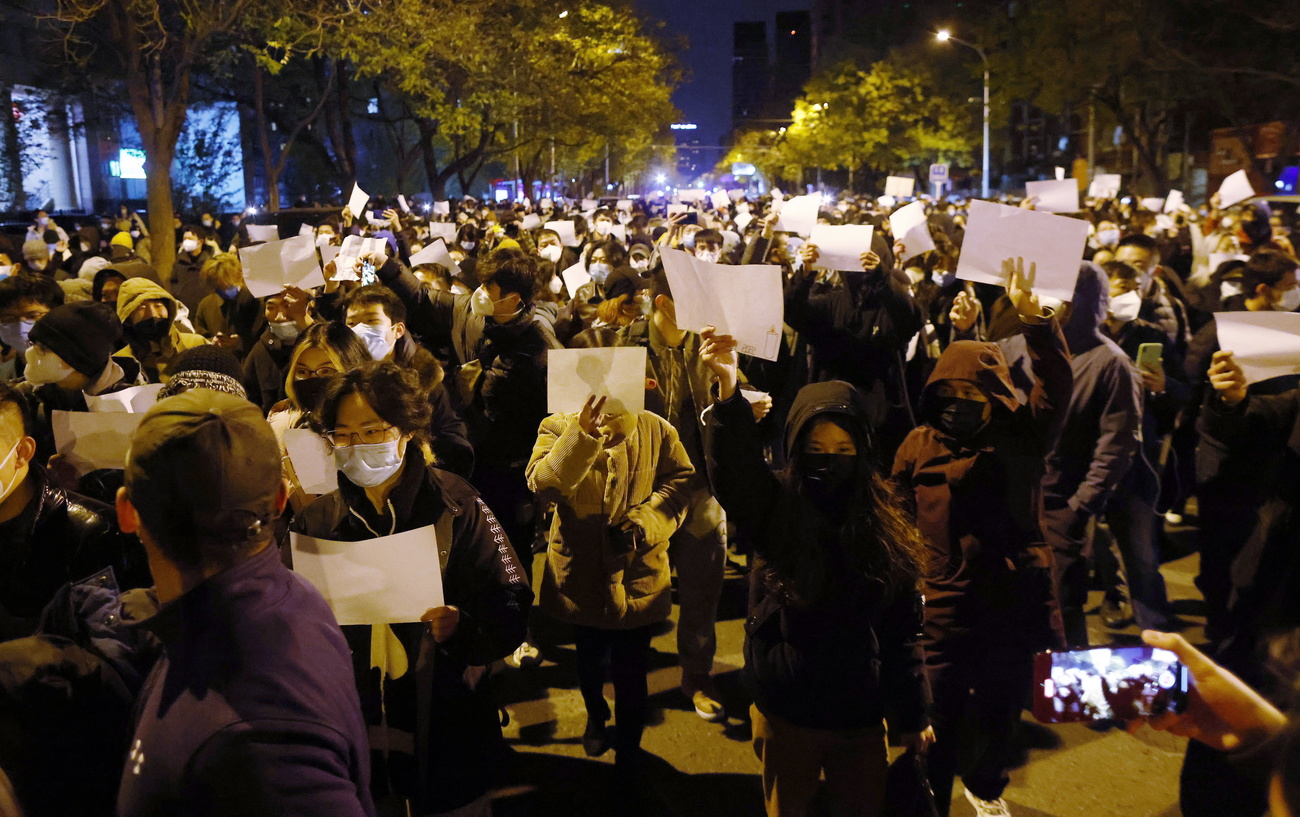
The new generation of undemocratic rulers fear neither elections nor citizen participation in public life. But they forget people’s desire for freedom, says the Global State of Democracy 2022 report published on Wednesday.
Last weekend Shanghai was the scene of protests calling for an end to the world’s strictest Covid-19 restrictions, and in many cases for more freedom. The demonstrations quickly spread to China’s main cities – Beijing and Wuhan — as well as to over 50 university campuses. They are ongoing.
In Iran a popular upheaval has been shaking the Islamic state for more than two months, sparked by the death of young woman in police custody. And in Budapest teachers, students and parents called for civil disobedience last weekend against the nationalist government of Viktor Orban and the creation of a 10-km human chain.
Autocrats on the rise
“These are truly remarkable reactions and they can contribute to positive developments,” says Alexander Hudson, a “Democracy Assessment Specialist” at International IDEA and one of the co-authors of the new Global State of Democracy 2022 reportExternal link (GsoD22).
But these recent demonstrations against authoritarian rule cannot hide the fact that autocrats have massively increased their global reach, according to the report.
International IDEA is a global inter-governmental democracy support agency with headquarters in Stockholm (Sweden). It has published its Global State of Democracy report since 2017. The report analyses how countries are faring in terms of upholding democratic principles, including factors such as basic welfare, the absence of corruption and social equality.
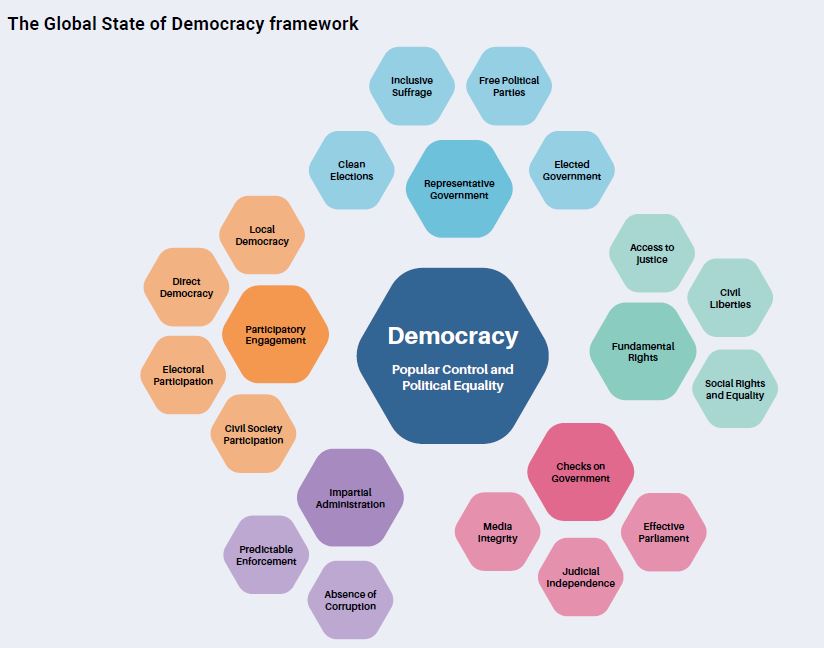
According to the latest report, twice as many countries became more authoritarian in 2021 compared to those that became more democratic. Hudson adds: “Authoritarian regimes have deepened their repression, with 2021 being the worst year on record.”
Time travel back to 1990
The statistics show that the world is back where it was at the end of the Cold War, with more or less the identical number of democracies and authoritarian regimes as in 1990. Out of the 173 countries analysed in the report, 104 can be labelled as democracies.
Fourteen of those countries are more democratic in 2021 than the previous year, whilst 48 are less democratic. Of the 69 autocracies surveyed, over half have become more repressive in 2021.
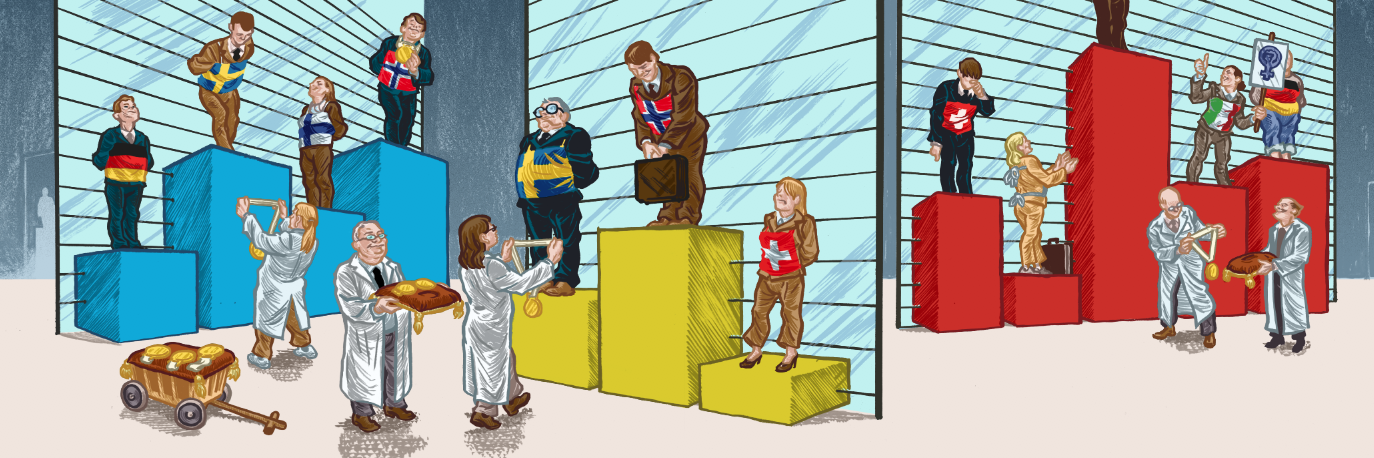
More
Fifty shades of democracy: can you measure people power?
But while the number of democratic versus autocratic countries is about the same as in 1990, autocratic leaders have been able to adapt to a more transnational and digital world. Before openly going to war against its neighbour Ukraine and abolishing the last remains of freedom in Russia, President Vladimir Putin developed his own brand of “electoral autocracy”, a system with regular but unfree and unfair elections. Meanwhile, Hungary’s Orban in 2014 announced the creation of an “illiberal democracy”, citing Turkey and Russia as examples.
“The means of repression have certainly become more creative,” states Hudson. “But at the same time autocracies are more prone to error. Their mistakes, as we currently can see with Putin’s war, take a very long time to be fixed.”
116 shades of democracy
The report also offers some glimmers of hope for democracy. As protests erupt in autocratic states, several countries around the world have increased their democratic coefficient in this year’s report. These include the Gambia, Sri Lanka, Chile and Moldova.
Others, like Switzerland and the Scandinavian countries, are stable in all of the 116 variables analysed by the authors. Consequently, these countries see long-term effects regarding peace, building wealth and creating wellbeing.
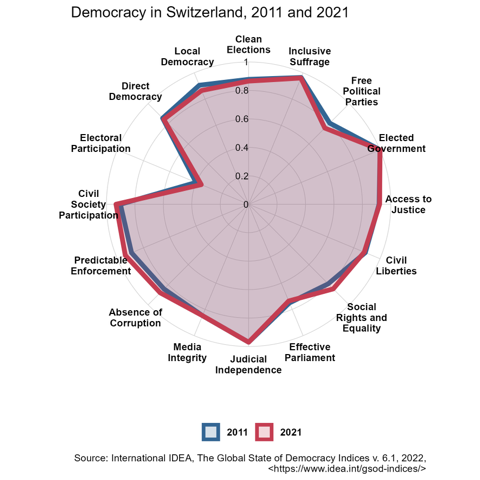
“Swiss democracy is doing well,” says Giada Gianola, a lecturer in political science at the University of Bern. “We have also seen improvements in different areas (of democracy) in the last ten years, including the implementation of new transparency rules for political parties or more equal representations of both women and men in parliament.” Gianola also refers to the Democracy BarometerExternal link, a Swiss-German project to measure democracy, which monitors small changes in the democratisation of a country. Despite positive steps, the barometer has also recorded negative developments, such as more polarised attitudes between political parties and between voters, she noted.

What’s next?
The Global State of Democracy 2022 report describes the current state of democracy at a historic crossroads. “Given current trends, democracies are under urgent pressure to deliver. Fortunately, efforts are already underway to reinforce democratic structures,” it states.
Hudson says these efforts include everything from allowing protests to proven robust electoral institutions, as recently demonstrated in Kenya and Brazil, both of which held mainly peaceful general elections in 2022. He argues that as autocrats are reinventing themselves, democrats also need to be creative both by strengthening and protecting existing institutions and “by democratising democracy itself” at all political levels.

In compliance with the JTI standards
More: SWI swissinfo.ch certified by the Journalism Trust Initiative

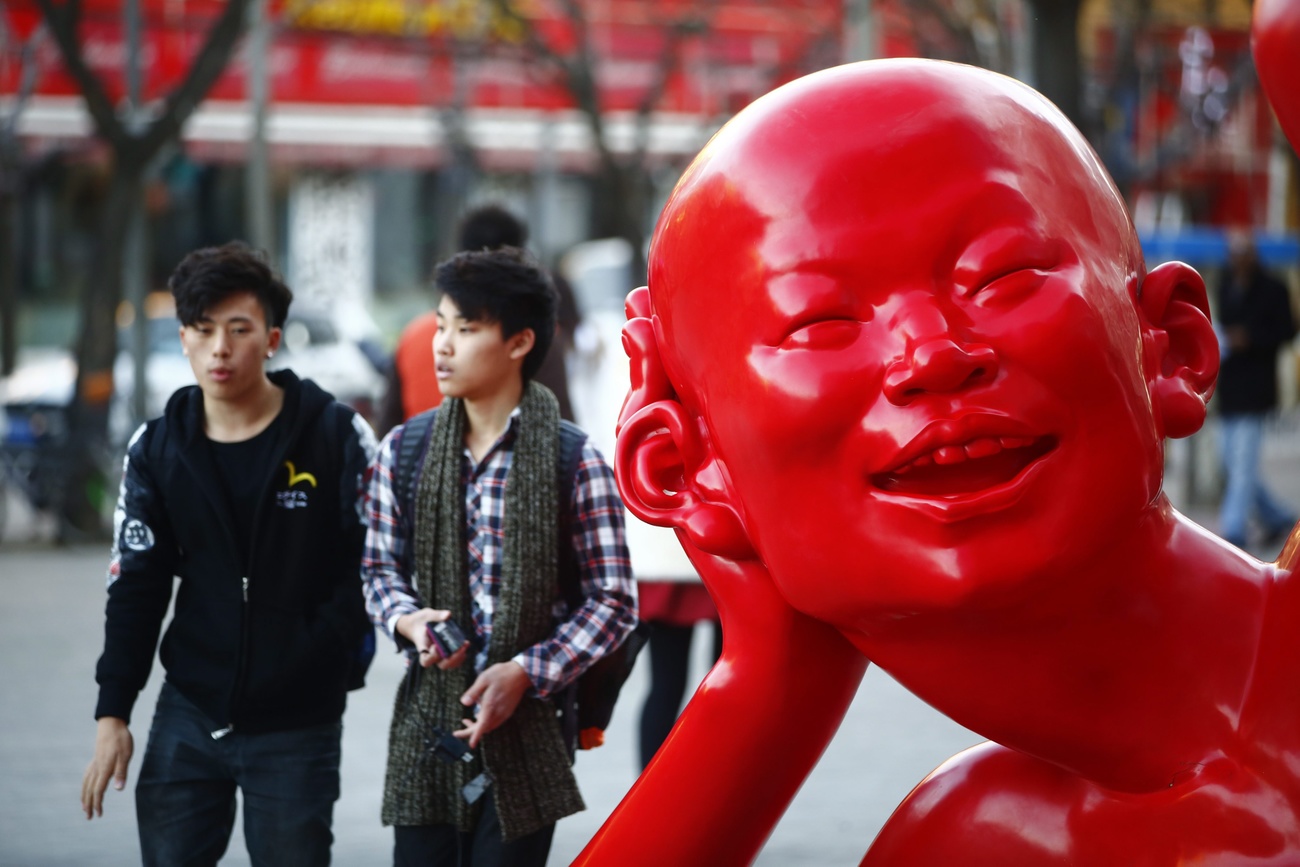



You can find an overview of ongoing debates with our journalists here. Please join us!
If you want to start a conversation about a topic raised in this article or want to report factual errors, email us at english@swissinfo.ch.